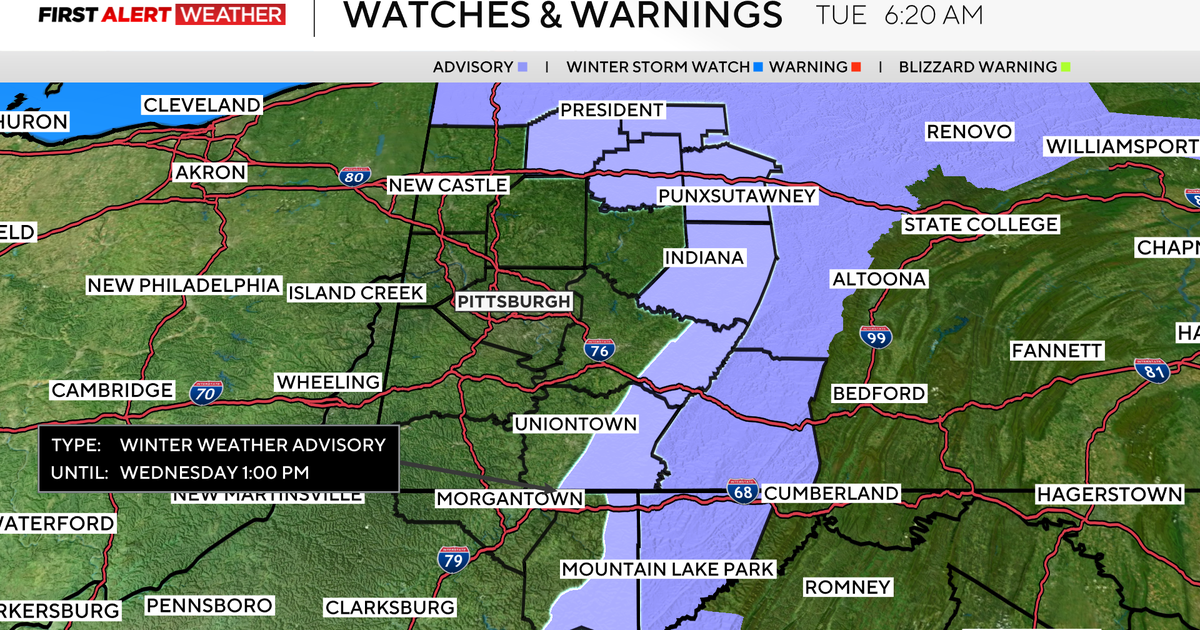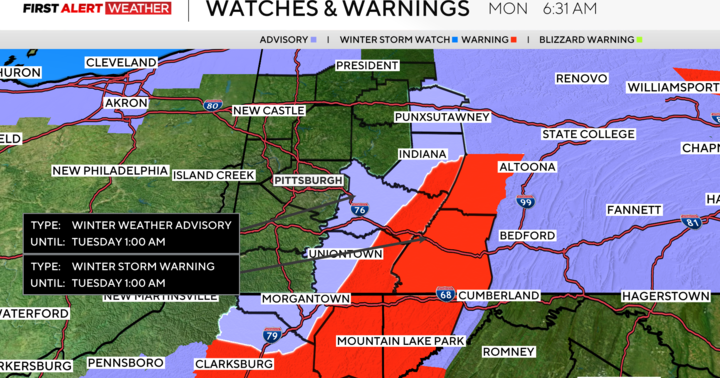Wearing Sunglasses Daily Can Help Prevent Serious Eye-Related Complications
PITTSBURGH (KDKA) -- As you head out today, even on an overcast day, don't forget your sunglasses.
Experts say that not using sunglasses can lead to some pretty serious complications with your eyes, eyelids, and even the skin around your eyes.
"Year round, we should be wearing sunglasses. UV rays don't stop in the winter," says Ophthalmologist Dr. Ellen Butts with the UPMC Eye and Ear Institute. "Snowy days are some of the worst because we get the light reflected off the snowy ground, as well as coming from above us."
We may be a couple of months away from having to worry about snow glare, but the fall sun is no less unrelenting. And Dr. Butts says everyday brings the threat of damage. "The sunlight that we are exposed to is cumulative throughout our life. UV rays can cause early cataracts, it can also cause skin cancer, and the eyelids are one of the most common areas to get skin cancer."
She says even the whites of your eyes are vulnerable. "You can get a pinguecula there, you know damage from the sun." And that damage left untreated can spread over the cornea requiring surgery or even vision loss. The best protection, sunglasses.
Watch as KDKA's John Shumway reports:
"Not all sunglasses are created equal," says Dr. Butts, so make sure you make sure the lenses you are buying have, "UV 400 or 100% UV protection. Anything less than that you could be doing yourself more harm than good."
For instance she says grocery store and drug store sunglasses might deliver comfort but Dr. Butts says, "Comfort, and UV protection are different things. You can get a pair of dark sunglasses over the counter that don't have UVB protection, which can actually be more damaging to our eyes." The reason those glasses can be hazardous, "They allow the pupils to dilate open up, allowing more UV rays to come through and actually being the opposite of what we're looking for, so it can actually hurt us rather than helping us."
And Dr. Butts says make sure you are getting 'backside anti reflective' lenses. "When the sun hits you from behind, you can actually get bounced back off the UV rays back into your eyes."
If you are wearing prescription glasses Dr. Butts says you may already have some UV protection because most modern glasses materials have some UV protection built in. But she says make sure, "You should always be asking when you're purchasing your glasses are they coming with UV protection."
As for contact lenses, they also have some UV protection but they only cover the center of your eye leaving the whites of your eyes and the delicate skin around the eye exposed.
Dr. Butts says transition lenses also are effective in protecting your eyes.
One final point, polarization does not equal UV protection. Dr. Butts says whatever you are buying, look for the UV protection.







